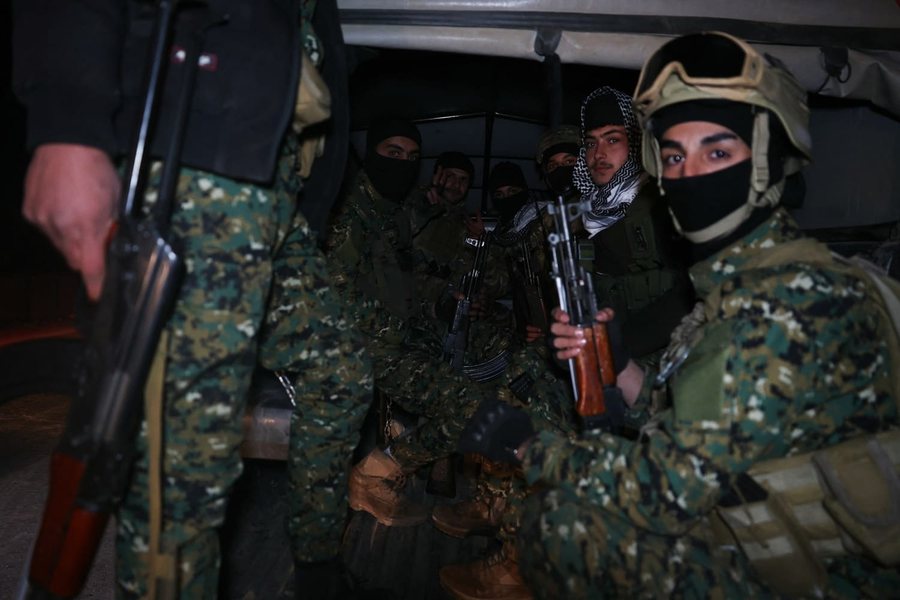
Syrian leader Ahmed Sharaa called for peace on Sunday after hundreds of people were killed in the deadliest violence in 13 years of civil war, pitting supporters of ousted President Bashar al-Assad against the country's new Islamist rulers.
The clashes, which a war monitoring group said had killed 1,000 people, mostly civilians, continued for a fourth day in the Assad-backed stronghold.
A Syrian security source said the pace of fighting had slowed around the cities of Latakia, Jabla and Baniyas, as security forces controlled the surrounding mountainous areas where about 5,000 pro-Assad rebels were hiding.
Interim President Sharaa called on Syrians not to allow sectarian tensions to further destabilize the country.
"We must preserve national unity and peace in the country, we can live together," Mr Sharaa said in a video, speaking at a mosque in his childhood neighborhood of Mazzah, in Damascus.
"Be assured about Syria, this country can survive... What is currently happening in Syria is an expected challenge."
The United States condemned "radical Islamic terrorists, including foreign jihadists" for the violence and called on Syria's interim authorities to hold accountable the perpetrators of "massacres against Syria's minority communities."
"The United States stands with Syria's religious and ethnic minorities, including its Christian, Druze, Alawite, and Kurdish communities, and offers its condolences to the victims and their families," US Secretary of State Marco Rubio said in a statement.
Rebels led by Sharaa’s Sunni Islamist group Hayat Tahrir al-Sham overthrew Assad’s government in December. Assad fled to Russia, leaving behind some of his closest advisers and supporters, while Sharaa’s group appointed an interim government and took command of Syria’s armed forces. Assad’s overthrow ended decades of his family’s rule, which was characterized by brutal repression and a devastating civil war that began as a peaceful uprising in 2011.
The war - in which Western, Arab and Turkish countries have backed the rebels, while Russia, Iran and militias loyal to Tehran have backed Assad - has become a theatre of conflict between armed factions with different loyalties and agendas. It has killed hundreds of thousands of people and displaced millions of Syrians.
THE RISE OF THE REBELLION
After months of relative calm following Assad's ouster, violence escalated this week as forces allied with new Islamist leaders launched a crackdown on a growing insurgency by Assad's Alawite sect in the Mediterranean provinces of Latakia and Tartous. The Britain-based Syrian Observatory for Human Rights said on Saturday that more than 1,000 people had been killed in two days of fighting.
He said 745 were civilians, 125 members of the Syrian security forces and 148 fighters loyal to Assad.
Rami Abdulrahman, the head of the organization, said the civilians included Alawite women and children. Mr. Abdulrahman told Reuters on Sunday that the death toll was one of the highest since a chemical weapons attack by Assad's forces in 2013, which killed about 1,400 people in a Damascus suburb.
The European Union, whose officials have held talks with Sharaan since he became Syria's de facto leader, condemned "all violence against civilians" and "any attempt to undermine stability and prospects for a lasting peaceful transition" in Syria . (A2 Televizion)











